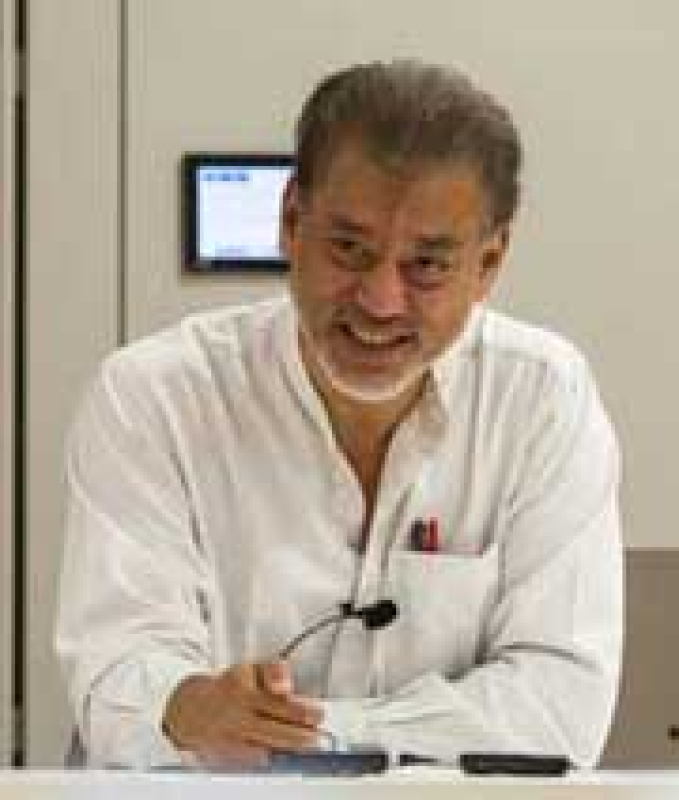- FFD4 Must Deliver for the World’s Most Vulnerable Nations |
- Observe July Uprising Annually to Guard Against Autocracy |
- Human Rights a Key Driver of Climate Change Progress |
- Security measures at Shahjalal Airport enhanced |
- Polls in early next year: Prof Yunus tells Marco Rubio |
Trump Exposes Rival Trade Myths, But Faces Own Flaws

Jomo Kwame Sundaram
President Trump’s tariffs have exposed neoliberal trade ideology and undermined corporate lobbying in the name of free trade. However, his rhetoric has also revealed the fallacies of his own economic strategy.
To be sure, there has never really been an era of truly free trade in centuries. International trade has typically been partially and unevenly free and, more often than not, regulated.
Most so-called neoliberals have never consistently promoted free trade regardless of circumstances, but only when it seemed to serve their national and corporate interests well, e.g., via unequal exchange.
Trump’s tariffs claim to revive manufacturing jobs, which the US has lost to cheaper imports. But employment lost to automation will be almost impossible to regain. Worse, his tariffs will regressively tax US consumers.
Free trade does not help selective investment and technology promotion. Biden sought to promote new industries, often at high cost, with his Inflation Reduction Act, CHIPS and Science Act, and other industrial policy measures.
However, these have been undermined by Trump’s insistence on repudiating earlier administrations’ initiatives and cutting non-military government spending even when they serve his ostensible strategic ends.
With tariffs as his main policy weapon in his bullying, transactional approach to exclusively bilateral bargaining, Trump’s reindustrialisation ambitions may only partially succeed.
His refusal to bargain collectively enhances the US advantage in such asymmetric negotiations. Others anxious to curry favour have already conceded excessive concessions, even exceeding Washington’s expectations!
The fate of the worst-off thus only worsens, generating widespread resentment and antagonism. But few tangible gains are likely for the weakest, except for mineral concessions.
In the 1960s, French President Charles de Gaulle complained the 1944 Bretton Woods agreement (BWA) had given the US an ‘exorbitant privilege.’ The price of an ounce of gold was set at $35.
This peg allowed the US to borrow cheaply from those who needed US dollars. Selling US Treasury bonds to the world thus closed both its current account (trade) and fiscal deficits.
Pressure on the greenback rose over the 1960s, especially with sharply rising Vietnam War spending. France then led others to demand gold instead of holding dollars.
In August 1971, President Nixon unilaterally repudiated the US’s BWA obligation to redeem gold at the promised dollar price. But this did not end the US’s exorbitant privilege.
The US allowed the Saudi-led OPEC to raise the oil price if payments were in dollars. The petroleum price hike also set back its emerging European and Japanese industrial rivals.
Since 1971, US dollar acceptance has relied on the belief that it will continue as the international reserve currency. Thus, exorbitant privilege has become a matter of faith.
Ironically, while Eurodollars had undermined the BWA, petrodollars saved the dollar’s reserve currency status and exorbitant privilege, with oil becoming the ‘new gold.’
Half a century of neoliberal trade rhetoric has claimed ‘trade liberalisation’ benefits all, e.g., free trade lifts all boats, its leading myth.
Although this has not even been true of the Global North, it has not deterred economic policy pundits from advocating free trade agreements with the US as the solution to Trump’s tariffs!
But even trade mahaguru Jagdish Bhagwati insists that only an equitable multilateral trade agreement can lift all boats. He denounced bilateral, regional, and other plurilateral agreements as termites detracting from it.
The most popular computable general equilibrium (CGE)-based trade simulations assume unchanging full employment, trade, and fiscal balances.
Such estimates of free trade gains are misleading, as their methodologies typically ignore trade liberalisation’s significant problematic effects, such as output and job losses and trade and fiscal imbalances.
Unsurprisingly, cost-benefit studies by the World Bank and others projected net losses for most of the Global South from the 2001 Doha Round of World Trade Organization (WTO) negotiations.
Trump’s ‘shock and awe’ Liberation Day announcement brought much of the world to heel in one fell swoop. As the president bragged, scores of governments rushed to “kiss his arse.”
However, Trump’s priorities, especially his proposed tax cuts, the changing world political economy, and the diverse nature of US interests, will erode public support for his agenda.
Trump’s policy narrative is unashamedly incoherent and self-contradictory. The Financial Times noted, “The US president wants both to protect domestic manufacturing and hold the dollar as the reserve currency.”
Self-servingly dismissive of received conventional wisdom, his jingoistic rhetoric and self-congratulatory style successfully target his faithful with cherry-picked evidence and half-truths.
Even if Trump’s tariffs fail on his own terms, he can still claim to have tried to make America great again. He will continue to blame opposition within and without to secure his jingoist MAGA base.

